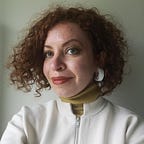The Museum as a space for possibilities
Interrogating the role of museums as narrative-shaping institutions as part of the Invasive Design fellowship at Forecast Forum 2018, Haus der Kulturen der Welt, Berlin
Why do museums matter?
When was the last time you visited a museum? What was the thing you noticed most? The architecture, the objects on display, the exhibition design, the shop? Have you ever thought about the ways in which narratives are constructed, the omniscient singular voice of the display texts, the reasons why an artefact might be categorised as ‘classical’ versus ‘primitive’?
Throughout my practice I’ve been fascinated by the role of institutions in shaping places and therefore our relationship to collective identity and belonging — be they churches, town halls, community centres, hospitals, universities, or firestations. Many times moments of expression of civic pride, identity and aesthetic and functional zeitgeist, institutions are containers of our collective narrative that punctuate the fabric of the cities and towns they’re embedded in. Museums are one such typology — from local museums in sleepy small towns, to the more recent paradigm of ‘regeneration through culture’ and the growing number of supermuseums putting ‘world cities’ on the map.
They are symbolic signifiers of social and cultural capital amassed over centuries where we might spend an afternoon looking at exhibitions, drift through collections, have a coffee, use the wifi, or just shelter from the rain. What we’re less aware of are the hidden systems of categorising the world and the role of these processes in deciding what is valuable, what needs preserving and what stories therefore need telling. What we’re even less aware of, is the path-dependency of how gaze is constructed as (predominantly) Western ways of seeing, collecting and categorising, which raises the question:
Who is collecting and who is being collected?
A kit of parts for a #MuseumTakeOver
With this in mind, as part of the Future Forecast platform I’ve been exploring the following question:
How do we open up the debate about how the role of museums should evolve — from sites of curated storycrafting of the past to sites of production and exploration?
I decided to situate my explorations for the week in Berlin and tap into a very live debate — the move of the Ethnologic Museum from Dahlem to the reconstructed Humboldt Forum (for a more in-depth account of the convoluted story of why an original Prussian-style facade is replicated today to house ethnographic artefacts many times obtained through colonial processes of loot, artificial demand creation and othering, read this). Apart from the architectural debate, I was fascinated with questions around what type of museum this will be. Should it be an ‘ethnological’ museum? An art museum? How are these categories decided upon and who decides?
I set out to develop a #MuseumTakeOver toolkit — a set of (lo-fi) frames, questions and lenses to enable museum visitors to become participants in this process, see which questions resonate with them, and create an invitation to dialogue to explore questions rather than seek absolute answers. For the work in progress exhibition, I situated my toolkit in a temporary exhibition which displayed, for the first time, artefacts from the Ethnological Museum’s collection dotted around artefacts from the collection of the Bode Museum.
The toolkit contains a set of files which can be used to enact a #MuseumTakeOver. It currently contains postcards, stickers and posters, but the ambition is to develop ‘hacked’ maps of museum collections to create different journeys and connect different objects on display, or even ‘hacked’ audioguides / podcasts to guide visitors on an alternative journey through the museum — the possibilities are endless!
Please take this toolkit (link here) as a starting point and feel free to use, hack and remix the content and the format — and please share your iterations with me (at corinaangheloiu1@gmail.com) and with the world (by uploading your version to the folder or by using #MuseumTakeOver on social media).
Enjoy your explorations!
